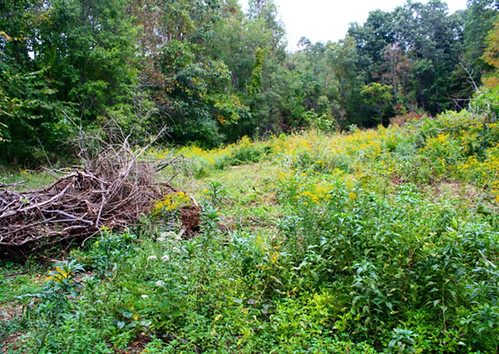
Joe and Jon Higgins are brothers who are working with USDA’s Natural Resources Conservation Service (NRCS) to improve the environmental quality of the 36 acres of land they share in Pomfret, Connecticut.
In 2010, the pair attended a forestry workshop at the University of Connecticut’s Cooperative Extension System. This was where they first heard about NRCS and its programs. After the session, they stayed to talk with Resource Conservationist Mark Edmonds and decided NRCS’ Environmental Quality Incentives Program (EQIP) would provide exactly the help they were looking for in addressing some forest and wildlife management issues on their property.
They enrolled soon after, and NRCS helped them create a custom conservation plan for their lands, which they are now implementing.
Because their property borders more than 700 acres of conservation land owned by the Connecticut Audubon Society and the State of Connecticut, it’s not unusual to see turkeys, deer, rabbits, waterfowl or an array of birds on any given day. The brothers want to add to this conservation land with their own lands, improving the quality of the native habitat and creating a diverse wildlife sanctuary.
Their goal is to remove all non-native invasive species and brush to restore grassland on part of their property. To date, they have removed bittersweet, autumn olive, and Japanese barberry from over 12 acres. Once the invasives are eradicated, the Higgins brothers plan to plant conifer seedlings to enhance the forest stand and create wildlife cover. They also plan to plant blueberry bushes in locations throughout the property to provide food for wildlife.

The Higgins brothers believe that EQIP has been, and will continue to be, successful on their land.
“The financial incentive certainly is a great one,” says Joe Higgins. (EQIP can provide financial assistance to producers.) “But we believe the educational aspect of the program is greater.”
The brothers’ discussions with Edmonds on their forest management plan have educated them on best management practices. They believe that learning how to manage their land has been the most beneficial part of the program – and say it wouldn’t have been possible without NRCS.
Find out more about EQIP.
Check out more conservation stories on the USDA blog.
Follow NRCS on Twitter.
